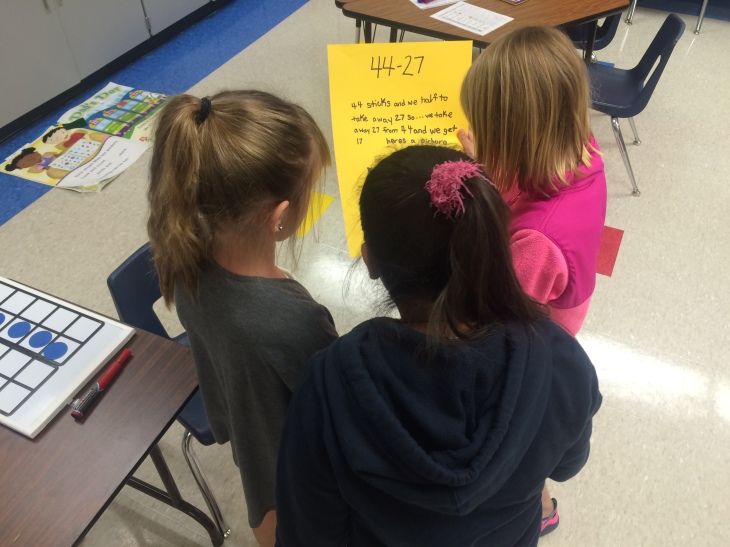The first time I taught a math lesson without using worksheets was the worst mind shift ever. Why ditch the worksheets to begin with? Well, my biggest problem with worksheets is that a TON of the work has been done for the child already. The problems are all set up, and a lot of the thinking is pre-determined. Here I’ve got students checking their thinking by writing what they did with place value blocks. Much more eye opening than checking just the answer they got!

So in an effort to do this more I tried group work surrounding a key concept using Reasoning Puzzles. I was panicking at the end, wondering what did the students even practice, did they learn anything, and how do I know they learned anything???
What I really wasn’t doing was giving myself enough credit as a professional. There are things that every teacher has in place, or can easily put into place to remedy that panic:
- Observation: Tell me about the time that you gave an assessment and were surprised when someone didn’t do well. Oh? That’s never happened? That’s because you are in their faces all the time and you know what the students are able to do on a daily basis. You’re never surprised because your careful observations tell you when students are lost. How you take notes is probably up to your own personal style, but what you do with those notes we’ll talk about in another blog post.
- Exit slips: One or two problems just to check on the key understandings is all you really need to know if someone understood what was going on. Sometimes we get caught up on things looking “pretty”…and it took me a long time to let that go. My favorite exit slip for whole group, small group or even 1 on 1 teaching is the ever useful post it note.
- Trust in the conversations: You know that when are you are learning something new, you don’t always have to prove it with a worksheet. Sometimes you watch a video, talk to others, write it down. You have multiple learning modalities which is true in the math world as well. Watch their demonstrations and listen to their conversations. They don’t need a piece of paper to prove it EVERY time.
If you are truly very tied to worksheet based mathematics, no one is suggesting you let it all go on the first day. Maybe try something different once a week, but build in the routines for it as well. In coming blog posts I’ll highlight some of those routines and procedures to help us brainstorm together how we can keep students accountable.
[…] work has been done for the child already. The problems are all set up, and a lot of the…Continue reading →from Beyond Traditional […]
LikeLike
Great post! I do use worksheets, but not as much as I did when I started teaching. The alternative assessment methods work so much better, and the kids are so much more excited about showing what they know! Thanks for sharing. I look forward to future posts!
Jan
Laughter and Consistency
LikeLike